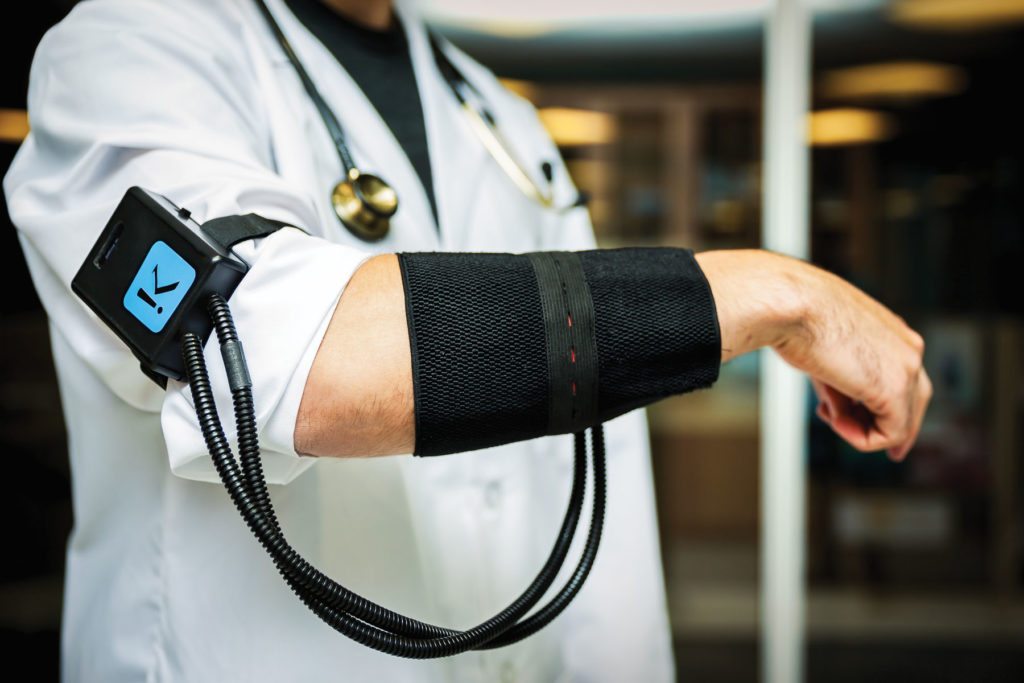Therapeutic Talk: Integrating the Brain Through Technology
 One of Elon Musk’s five forward-thinking companies, Neuralink, is focused solely on developing devices that can be inserted into the brain and allow for a brain/machine interface with information going into or coming from the brain to aid in treating neurological disorders such as stroke and Alzheimer’s. Many neuroscientists doubt the possibility of the technology working, for two reasons. First, the technology would need to overcome physical barriers. Now, inserting even the tiniest hardware into the brain would cause tissue scarring detrimental to the brain. Second, technology that would read information from the brain could only be trained to respond to what we already know. Since we do not understand how the brain encodes information like a machine does, a machine cannot be instructed to do it on its own.
One of Elon Musk’s five forward-thinking companies, Neuralink, is focused solely on developing devices that can be inserted into the brain and allow for a brain/machine interface with information going into or coming from the brain to aid in treating neurological disorders such as stroke and Alzheimer’s. Many neuroscientists doubt the possibility of the technology working, for two reasons. First, the technology would need to overcome physical barriers. Now, inserting even the tiniest hardware into the brain would cause tissue scarring detrimental to the brain. Second, technology that would read information from the brain could only be trained to respond to what we already know. Since we do not understand how the brain encodes information like a machine does, a machine cannot be instructed to do it on its own.
Nevertheless, Musk is determined to release such a device in the next five years. After testing the devices in medical studies, Musk hopes to be the pioneer of an implant that completely integrates with our brain, storing memories, connecting us to the Internet, and more. Why? Musk believes that brain devices will be the only way for humans to stay relevant in a world that will become dominated by artificial intelligence.
Medical Devices: Stimulating Empathy
 An experimental empathy device recently released by Klick Labs is designed to electrically stimulate the user’s muscles to replicate the difficulties patients with movement disorders experience. The SymPulseTM Tele-Empathy Device records continuous electromyogram data from the patient and wirelessly transmits it to an electrical muscle stimulation armband for non-patients. The device induces involuntary muscle activity, which mimics patient tremors in real time, and enables physicians and family members to experience these difficulties during simple tasks, such as buttoning a shirt.
An experimental empathy device recently released by Klick Labs is designed to electrically stimulate the user’s muscles to replicate the difficulties patients with movement disorders experience. The SymPulseTM Tele-Empathy Device records continuous electromyogram data from the patient and wirelessly transmits it to an electrical muscle stimulation armband for non-patients. The device induces involuntary muscle activity, which mimics patient tremors in real time, and enables physicians and family members to experience these difficulties during simple tasks, such as buttoning a shirt.
“Skillful use of clinical empathy is essential for all three major aspects of effective medical care: Accurate diagnosis, treatment adherence, and patient activation,” says Dr. Jodi Halpern, Professor of Bioethics and Medical Humanities at the University of California, Berkeley. “We need exciting new innovative approaches to inculcate empathy in physicians.” Beyond inducing empathy, the technology may help physicians analyze movement patterns and better assist the patient in overcoming their difficulties. SymPulseTM Tele-Empathy Device’s debut included a powerful video of the wife and brother of a 43-year-old man, who experienced his tremors from Parkinson’s disease.
Discoveries/Innovations: Can Mushrooms Fight Illness?
Do you love mushrooms? If you do, here’s a reason to love them even more: These fungi may soon help us battle antibiotic resistance. Common illnesses are becoming more of a threat as foreign bacteria become more resistant to our variations in medicine. Researchers at Chalmers University have discovered that at least 24 species of fungi have genetic material with more than 1,000 pathways for making bioactive compounds, opening up enormous possibilities for producing varying antibiotics.
“It’s important to find new antibiotics in order to give physicians a broad palette of antibiotics—existing ones as well as new ones—to use in treatment. This will make it harder for bacteria to develop resistance,” explains Jens Christian Nielsen, part of the research team. Whether or not pharmaceutical companies will be willing to invest in new market antibiotics remains to be seen.






